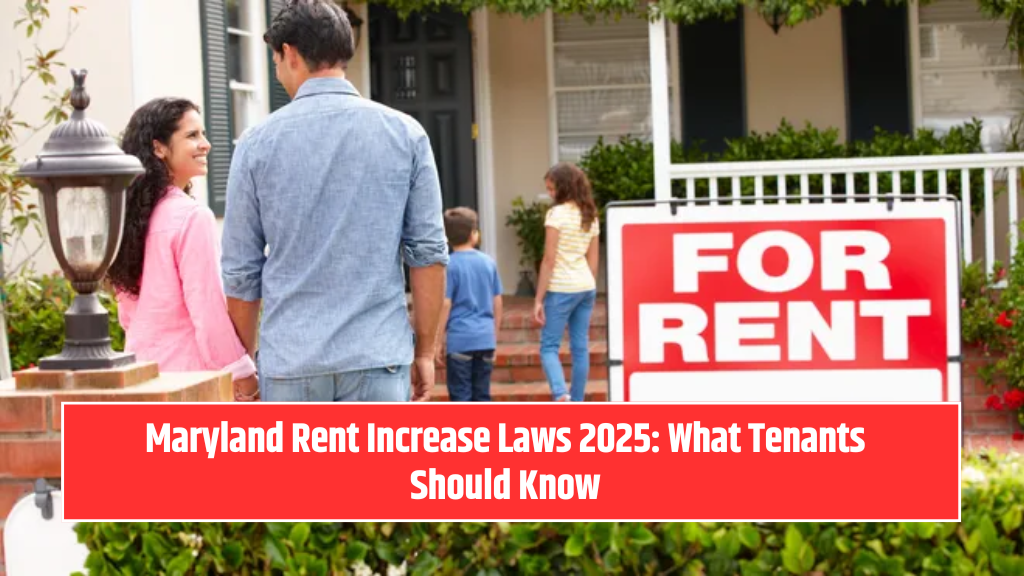Maryland has implemented a combination of statewide and local rules to manage rent increases, protect tenant rights, and ensure fair returns for landlords. With the recent passage of the Renters’ Rights and Stabilization Act of 2024, signed by Governor Wes Moore, new standards have been introduced, especially in areas like Montgomery County and Baltimore City, where rent stabilization and affordability are major concerns.
Understanding Rent Increase Notice Periods
Maryland law requires landlords to give advance notice before raising rent. The required notice varies depending on the length and type of lease:
- Leases longer than a month: 90-day notice.
- Leases between a week and a month: 60-day notice.
- Oral leases of a week or less: 21-day notice.
- Written leases of a week or less: 7-day notice.
These notice periods give tenants enough time to plan for changes or negotiate adjustments. Landlords must ensure compliance with these notice rules to avoid legal consequences.
Rent Caps and Stabilization Measures
While Maryland does not have a statewide rent cap, some counties do impose local restrictions:
Montgomery County Rent Regulations
Montgomery County is leading the way with the following:
- Bill 15-23, passed in 2024, caps rent increases at the lesser of 6% or the Consumer Price Index (CPI-U) + 3%.
- Executive Regulation 2-24 enforces this cap and promotes transparency between landlords and tenants.
- These laws aim to prevent extreme rent hikes while allowing landlords a reasonable return on investment.
Baltimore City Oversight
Baltimore City actively monitors rent increases but has not implemented strict rent caps like Montgomery County. Still, it encourages practices that keep rent reasonable and in line with economic conditions, especially for vulnerable populations.
Key Legal Provisions in the Renters’ Rights and Stabilization Act of 2024
This act outlines protections and responsibilities for both landlords and tenants:
- Higher filing fees for nonpayment complaints to discourage eviction over minor issues.
- Protection against landlord retaliation when tenants exercise their rights.
- Stricter compliance requirements for landlords regarding notice and justification for rent increases.
Capital Improvements and Justified Rent Hikes
Landlords may increase rent due to capital improvements (e.g., installing energy-efficient systems or structural upgrades). However:
- The increase must follow local guidelines.
- Documentation must support the cost of improvements.
- Tenants should be informed of the reasons for the rent hike.
Tenant Rights and Legal Protections
Maryland tenants benefit from strong legal protections, including:
Security Deposits
- Limit: Up to two months’ rent.
- Must be returned within 45 days of lease termination.
- Deposits must be held in a federally insured bank.
- If any part is withheld, landlords must provide a detailed damage report.
Failure to comply may result in the landlord paying up to three times the deposit amount, plus legal fees.
Fair Housing and Repairs
- Landlords are responsible for providing safe and habitable living conditions.
- Tenants may withhold rent or take legal action if serious repairs are neglected.
Market Impact of Rent Legislation
Recent regulations are changing the rental landscape in Maryland:
- Some landlords may delay renting or exit the market due to tighter rules, affecting supply.
- Affordable housing development is encouraged through legislation but may face challenges balancing profit and affordability.
- Rent control helps stabilize the market but may slow down new housing projects without added incentives.
Maryland’s evolving rent laws balance tenant protection with landlord rights. The state’s approach—especially in progressive counties like Montgomery—shows a commitment to housing affordability, stability, and transparent practices. Whether you’re a landlord or tenant, staying informed and compliant is key to maintaining a fair rental relationship.














